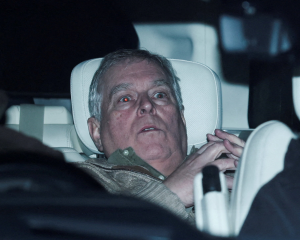About 76 percent of voters in the wealthy nation dismissed the proposal made by Swiss union SGB and backed by the Socialist and Green parties for a minimum wage of 22 Swiss francs ($US25) per hour, final results showed.
Some 53 percent blocked a plan to replace Switzerland's aging fleet of fighter jets with 22 Gripen jets from Saab. Just over 55 percent of those eligible voted, the government said.
The clear rejection of the proposed minimum wage - which corresponds to a monthly paycheck of 4,000 francs (about $4,500) - brings relief to business leaders worried the measure would have hurt competitiveness and damaged the Swiss workplace.
"If the initiative had been accepted, without doubt that would have led to job cuts, particularly in remote and structurally weaker regions," Swiss Economy Minister Johann Schneider-Ammann said at a news conference.
Sunday's vote is the latest initiative addressing a widening income gap in the generally egalitarian country. Voters approved giving shareholders a binding say on executive pay, but turned down a proposal to cap the salaries of top executives at 12 times that of a company's lowest wage.
Despite Sunday's "no", Daniel Lampart, chief economist at SGB, said the debate over the measure had led many companies to raise minimum wages to more than 4,000 francs. Discounter Lidl increased minimum Swiss salaries to 4,000 francs last year; retailer H&M says it will follow suit next year, although employers do not acknowledge a direct link to the proposal.
Swiss voters historically have vetoed what they feel are threats to the country's economic success. But they unexpectedly agreed in February to curb immigration from the European Union and last year backed the proposal to give shareholders a say over executive pay - ignoring warnings from business both times.
NARROW GRIPEN DEFEAT
The "no" vote for the Gripen jets bucks historical support for the military. Last September, the Swiss voted overwhelmingly in favour of keeping military conscription.
The government had argued that Switzerland needed modern fighters to support its armed forces.
"This decision will cause a security gap," Defence Minister Ueli Maurer said. "We will do everything we can to fill this gap in these difficult circumstances as quickly as is possible."
Switzerland was embarrassed earlier this year when a hijacked Ethiopian Airlines plane heading for Geneva had to be escorted by French and Italian fighters because the incident occurred outside business hours.
Although both the upper and lower houses of parliament backed the deal, Swiss interest groups - including socialists, Greens and the Group for Switzerland without an Army - collected the 50,000 signatures needed to force a popular vote.
Opponents had argued buying the jets was an unnecessary expense, requiring cuts in other areas, such as education. They also said the cost of keeping the jets in operation was likely to spiral to at least 10 billion francs over their lifetime.
The defeat is also a setback for Sweden's Saab, but analysts have said they do not expect it to derail the future development of the Gripen.
Saab has a framework deal with Sweden for 60 new-generation jets for Sweden and potentially 22 for Switzerland, with which it had hoped to share development costs. It now looks to gain a partner in Brazil after Saab won a tender last year to supply planes to the country.
Swedish Defense Minister Karin Enstrom said she regretted the Swiss "no." Co-operation would have helped both countries, she said, and Sweden still needed to develop its fighter jet capacities. "We will have to analyse this and find a (different) way forward," she told Reuters.
Saab said the development and production of the jets for Sweden would continue. The Swiss order "was not something we had booked in our order backlog. We will not change our earnings forecast for this year nor our financial targets," Saab Chief Executive Hakan Bushke told Reuters.
Bushke said negotiations with Brazil were going well and he expected to complete the deal this year.












